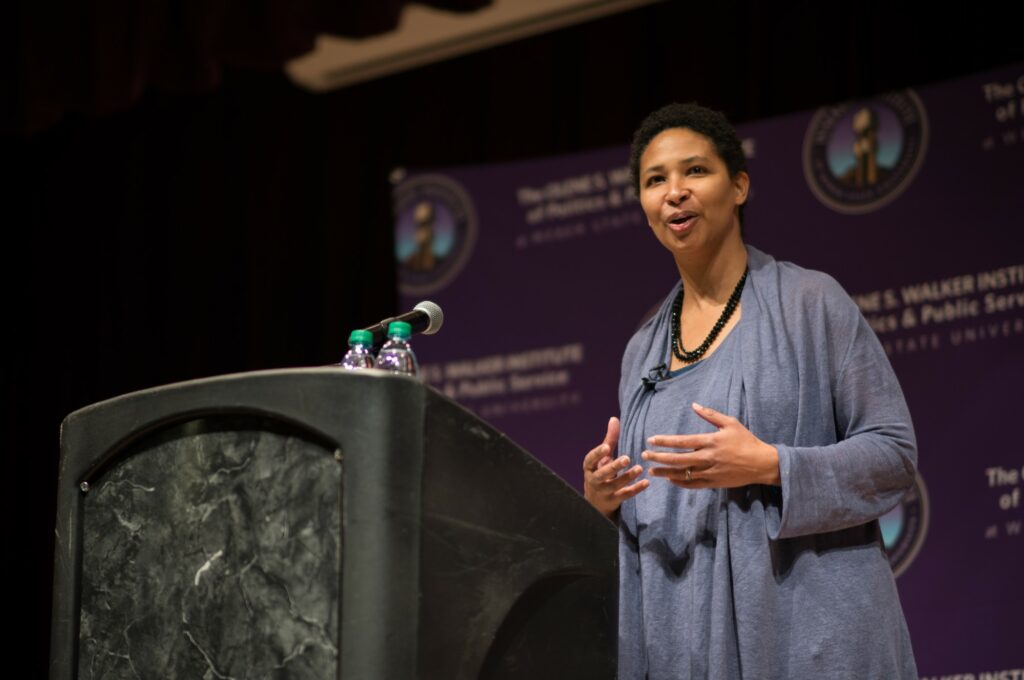
In democracy, there are always winners and losers, Harvard Professor Danielle Allen told an overflowing Wildcat Theater on Nov. 11.
The hallmark of democracy is that the losers accept the final result and winners are gracious in their victory. And ultimately, the art of compromise keeps it all from falling apart, she said.
Allen, a MacArthur Fellow and a political theorist, spoke of the message the Declaration of Independence has for a year in which a close election has split the nation. She was the Haven J. Barlow Fall Civic Leadership Forum speaker, sponsored by the Walker Institute of Politics & Public Service and WSUSA Convocations.
Abraham Lincoln understood the intention of the Declaration of Independence when he entered the Civil War to keep the seceding states in the Union, she said. His phrase “of the people, by the people, for the people” complements the words of that founding document.
The key to union in the United States, she said, is that when part of a democracy decides it wants to leave the the democratic structure because of differences, that separation only continues. Once the group that left settles into a new democracy, another group will inevitably disagree with the new institution and decide to secede. That can occur over and over until little is left, she said.
Lincoln’s words in the Second Inauguration Speech reflect this thinking, she said: “With malice toward none, and charity toward all … let us strive on to finish the work we are in, to bind up the nation’s wounds … to do all which may achieve and cherish a just and lasting peace among ourselves and with all nations.”
Compromise is crucial in this process because losers in an election still must feel that the government represents them, she said.
In a talk titled “Our Declaration: A Reading of the Declaration of Independence in Defense of Equality,” she referred to the text of the Declaration as an example of such compromise on two key points: religion and slavery.
On religion, she noted, the Declaration make several references to God while avoiding any adherence to a specific faith. This was to satisfy the Deists, who believed in God but not necessarily religion, and the deeply religious, such as the Puritans.
On slavery, an entire paragraph that condemned the slave trade was taken out of an early draft of the Declaration as a concession to slave owners. However, in the famous second sentence, “We hold these truths to be self-evident,” the sentence ends, “Life, Liberty and the pursuit of Happiness.”
The choice of “happiness” over “property” is an important concession, Allen said. It provided the seed of the Abolition movement that eventually saw the end of slavery.
She noted that an important component of compromise is giving a voice to those who are affected by the compromise.
Noting that she is the descendant of “those who bore the brunt of this compromise,” Allen said wryly that if slaves had been represented at the table, that compromise might have been different.
Allen’s book, “The Declaration,” is an analysis of this topic and is available in the Wildcat Store.







